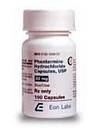Paxil
Paxil recall. serious withdrawal symptoms some patients experience when discontinuing the use of Paxil. A recent survey shows that as many as 75% of doctors are unaware that Paxil causes dependency withdrawal syndrome. As far back as 1997, GlaxoSmithKline was aware of studies reporting suicide related behaviors in young Paxil patients. Prozac is the only antidepressant that has been approved to treat children, though even the safety of that drug continues to be debated. Suicidal tendencies associated with Paxil can be the result of recent ingestion (particularly during the first few weeks of treatment initiation or dosage increase) or trying to stop the drug. There are multiple reports of suicides occurring when children and adults alike are trying to get off of the drug. Severe withdrawal reactions have been reported, but appear to be more severe if withdrawal is abrupt. However, withdrawal reactions have also been reported in patients who have withdrawn slowly from taking Paxil. While withdrawal
[pdf] glaxo didn't tell of paxil recall
Problems are reported with other SSRIs, the frequency and severity of withdrawal reactions with Paxil are higher. It has been estimated that as many as 50% to 75% of the people taking Paxil experience dependency withdrawal syndrome. The physical and psychological effects include the following: "Electrical 'zaps' to the brain, dizziness, extreme nausea, crying spells, light headedness, vertigo, coordination problems, gait disturbances, sweating, vomiting, high fever, abdominal discomfort, flu symptoms, agitation, tremulousness, irritability, aggression, sleep disturbance, nightmares, tremor, confusion, memory and concentration difficulties, lethargy, malaise, weakness, and general fatigue." Have you and others in your area been injured by Paxil side effects or withdrawal effects? Have you harbored extensive violent or suicidal thoughts that may be linked with your use of Paxil? Click the panels to contact an experienced and reputable Paxil lawyer today. Any delays could adversely affect